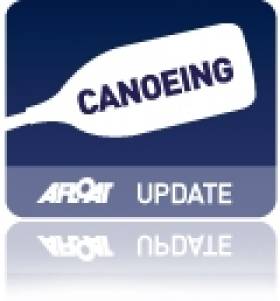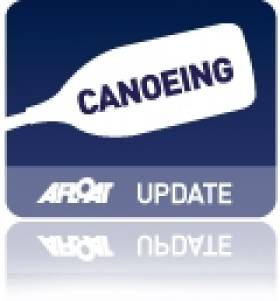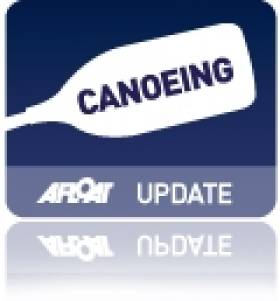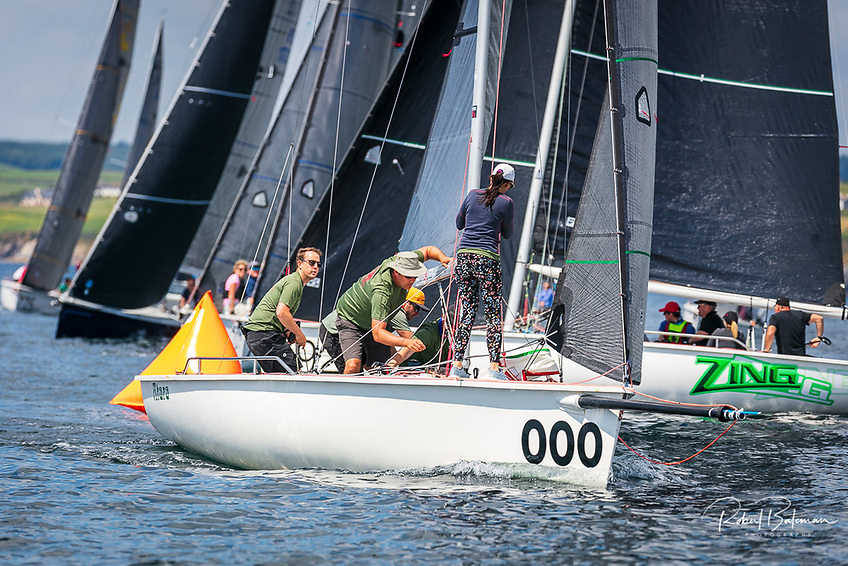Displaying items by tag: Egan
Jezierski Sprints Into World Cup Semi-Final
#CANOEING: A fast finish in his heat put Andrzej Jezierski into the semi-finals of the C1 200 metres at the Canoe Sprint World Cup in Szeged in Hungary today. Jezierski finished third in a heat which was won convincingly by Alexey Korovashkov of Russia.
Jenny Egan in the K1 200 metres and Peter Egan and Simas Dobrovolskis in the K2 200m also qualified for semi-finals.
Barry Watkins finished third in his semi-final of the K1 500 metres and qualified for the B Final.
Canoe Sprint World Cup, Szeged, Hungary (Irish interest)
Men
C1 200m – Heat One: 1 Russia (A Korovashkov) 41.746, 2 Kazakhstan (M Medetov) 43.888, 3 Ireland (A Jezierski) 43:978.
K1 500m – Heat One: 6 B Watkins. Semi-Final Three: 3 Watkins.
K1 1,000m – Heat Four: 7 B Watkins. Semi-Final Two: 8 Watkins.
K2 200m – Heat Four: 6 P Egan, S Dobrovolskis.
Women
K1 200 – Heat One: 7 J Egan
K1 500 – Heat One: 7 J Egan. Heat Two: 7 J Burke. Semi-Final Two: 8 Burke. Semi-Final Four: 9 Egan.
K1 1,000 – Heat One: 4 J Burke.
Ireland Canoeists Lose Time on Portages at World Championships
#CanoeMarathon2013: Ireland’s Jenny Egan and Peter Egan finished 15th and 19th respectively at the Canoe Marathon World Championships at Lake Bagsværd, Denmark, today. Jenny Egan started promisingly but was knocked back by her performances on the portages.
Peter Egan was generally faster on his portages on his paddle, but did lose control of his boat on one and lost time.
Last year, in Rome, Peter Egan finished 17th and Jenny Egan 16th.
Canoe Marathon World Championships, Lake Bagsværd, Denmark (Irish Interest, Selected Results)
Men, K1 (30.1 km): 1 H McGregor (South Africa) 2 hourse 10 mins 34 seconds; 19 P Egan (Ireland) 2:15.26.
Women, K (25.8 km) 1: R Csay (Hungary) 2:01.26; 15 J Egan (Ireland) 2:09.23.
Young Ireland Canoeists Find Going Tough in Denmark
#CanoeMarathon2013: Ireland’s junior and under-23 competitors struggled at the Canoe Marathon World Championships at Lake Bagsværd in Denmark today. Katrina Broderick finished 18th in the women’s junior K1, while Jack Seery was 33rd and Alexander Broderick 41st in the junior men’s K1.
At under-23 level, Seán McCarthy – in his first year at this level, was well down the field, while David Buggy did not finish.
Peter Egan and Jenny Egan compete in the men’s and women’s K1 tomorrow.
Canoe Marathon World Championships, Lake Bagsværd, Denmark (Irish Interest, Selected Results)
Men, K1 - Junior: 33 J Seery 1:43.10; 41 A Broderick 1:53.55.
Women, K1 - Junior: 18 K Broderick 1:34.31.































































